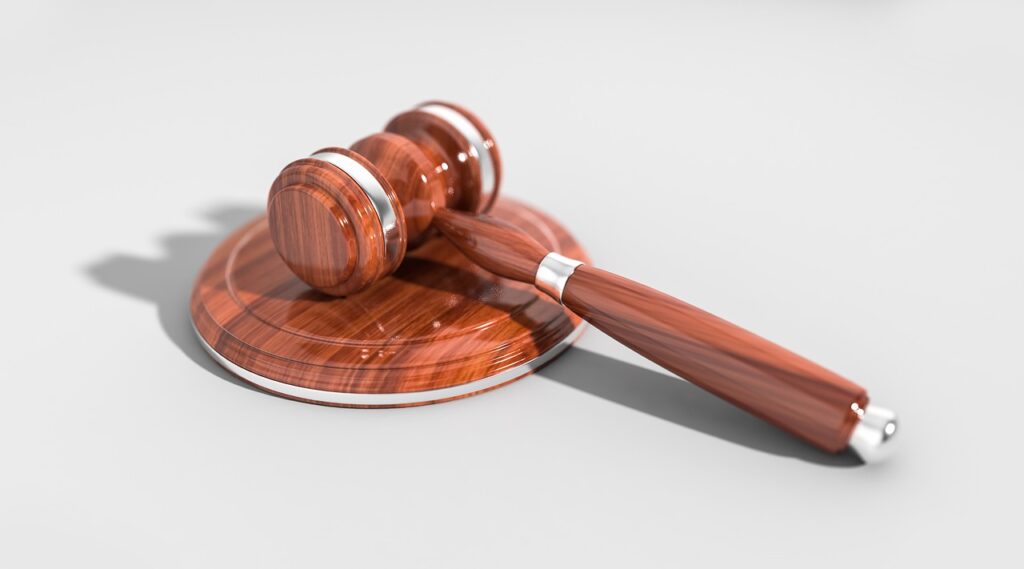- The High Court ruled in favour of Enock Aura, a Kenyan citizen who moved to court arguing that the directive was illegal and a violation of the rights of Kenyans
- Aura’s sentiments were similar to those of lobby group Human Rights Watch which said the move undermines basic rights
- On November 21 Kenya’s cabinet secretary for health, Mutahi Kagwe, announced that beginning December 21, authorities will require anyone seeking government services to provide proof of full COVID-19 vaccination
Kenya’s High Court has temporarily suspended a directive requiring citizens to be vaccinated to access in-person services in government offices.
On December 15, a High Court judge suspended the directive by the Ministry of Health, days before it was meant to take effect.
On November 21 Kenya’s cabinet secretary for health, Mutahi Kagwe, announced that beginning December 21, authorities will require anyone seeking government services to provide proof of full Covid-19 vaccination.
The services affected will include public transportation, education, immigration, hospitals, and prison visitation.
Proof of vaccination would also be mandatory for entering national parks, hotels, and restaurants.
The Ministry had also intended to rank proof of vaccination equally with other government documents such as Kenya Revenue Authority (KRA)’s Personal Identification Numbers (PINs) when acquiring government services.
A win for human rights
The publication reports that Enock Aura, a Kenyan citizen, moved to court arguing that the directive by Kagwe was illegal and a violation of the rights of Kenyans.
He argued that barring unvaccinated Kenyans from using public service is an affront to the right to freedom of movement.
According to Aura, thousands of tax-paying Kenyans would be denied access to government services which they have been funding without equal benefit.
Aura’s sentiments were similar to those of lobby group Human Rights Watch which said the move undermines basic rights.
The lobby group noted that the requirement risked violating the rights to work, health, education, and social security for millions of Kenyans as only approximately 10 per cent of adults in Kenya had been vaccinated by the end of November.
“While the government has an obligation to protect its people from serious public health threats, the measures must be reasonable and proportional,” said Adi Radhakrishnan, Africa research fellow at Human Rights Watch.
“Vaccination coverage hinges on availability and accessibility, and the government’s new measures could leave millions of Kenyans unable to get essential government services.”
Barring unvaccinated people
The suspension comes even as other institutions across the East African nation begin to require proof of vaccination to acquire a service.
Hotels in the country among them the Sarova Group of Hotels said they would not permit people who were unvaccinated.
“As announced by the Cabinet Secretary Ministry of Health in a statement dated 21 November 2021, the National Emergency Response Committee on Coronavirus (NERC) has directed that with effect from 21 December 2021, it will be mandatory for guests to show proof of full Covid-19 vaccination prior to use of our facilities,” Sarova hotels said in a statement.
“As part of our continued commitment to our guests, we continue to be guided by updates from the Kenya Ministry of Health and the World Health Organization (WHO). The health, safety, and security of our guests, team, and business partners remain our highest priority,” the company added, saying the requirement is applicable to persons over 18 years.
Vaccination numbers
Kenya kick-started its vaccination campaign began in March 2021 and placed priority on health workers, teachers, security personnel, and people over the age of 58 with eligibility expanding to all adults beginning June.
Currently, AstraZeneca, Moderna, Pfizer, Johnson & Johnson, and Sinopharm vaccines are available in Kenya, with the Health Ministry data saying that there is a limited supply.
Kenya, with an estimated adult population of 27.2 million and a total population of 55 million, has received approximately 23 million doses as of December 11 since the start of the vaccination program.
Current data shows that Kenya’s positivity rate had risen to 6.5 per cent as of December 13, even as the Omicron variant of the coronavirus continues to spread around the world.
The suspension also comes when the Kenyan government has failed to meet its goal of vaccinating 10 million people by the end of 2021.
Data by the Ministry of Health indicates that only 8.1 million people have received the first dose of the vaccine and more than three million have received the two doses.
The suspension case is set to be heard on January 4, 2022.
